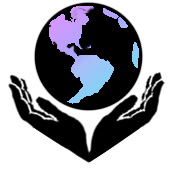The Feminist Diversifying, Unifying, Globalizing Process
created by: Jasica Chiang & Sophie Wang

"Feminism in one country is not sustainable -- we need feminism on a global scale."
- Women in Development Europe, 1995
The Feminist Diversifying, Unifying, Globalizing Process created by: Jasica Chiang & Sophie Wang
|
| What is the Feminist Diversifying/Unifying/Globalizing Process?
The Feminist Diversifying/Unifying/Globalizing Process is the last piece of the puzzle to the seven transformative feminist processes which together work to uproot gender inequality and polarization. The global unity which the Feminist Diversifying/Unifying/Globalizing Process builds is not based on sameness. Rather it is built on shared values and goals; respect for the diversity of women’s experiences, struggles, and visions; and a commitment to stand against all forms of oppression which women (and men) suffer from. In this way, the Feminist Diversifying/Unifying/Globalizing Process relies greatly on active practice of the combining process. Two Sides of the Feminist Diversifying/Unifying/Globalizing Process The two sides of the Feminist Diversifying/Unifying/Globalizing Process are women’s transnational feminist networks (TFN’s), and the global justice movement. Transnational feminist networks (TFN’s) have developed because, in the current, “globalized” world, women can not solve their problems on a purely national level. Together, women and women's groups all over the world are joining hands to fight for a better world. Transnational feminist networks organize around particular issues which women face, such as the denial of reproductive rights, fundamentalist repression, low wages and poverty, environmental destruction, etc. Examples of these groupsThe global justice movement is a movement of movements which incorporates feminism as a key aspect of its commitment to transforming all oppressive institutions. The global justice movement brings together various types of social justice movements from across the globe under a shared opposition to current, neoliberal economic policies, with the goal of building a global “economy and society based on solidarity, cooperation, freedom, democracy, economic and social justice, diversity, and sustainability” [1]. Women’s transnational feminist networks have been key players in the construction of the global justice movement. Organization of This Webpage This site is broken down into the following subsections:
|
|
There comes a time when we heed a certain call |
|
References: [1] Julie Matthaei and Barbara Brandt. “The Transformative Moment,” in Richard Westra, ed. The Political Economy of the Present and Possible Global Future(s). New York: Anthem Press, forthcoming. |
|